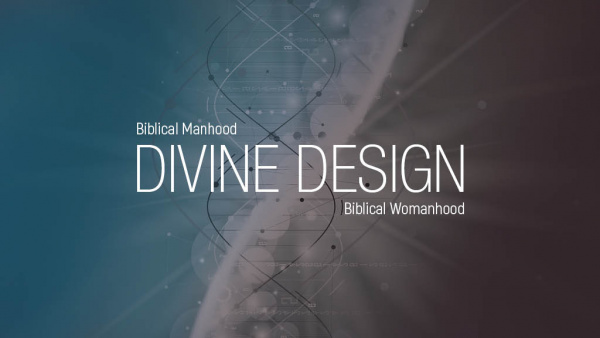Alan Benson: Thank you so much for joining us for our Q&A as a follow up to our Monday chapel series. And, today we’re going to discuss some questions in regard to the topic of womanhood. Dr. Pettit, thank you for the message. Kind of in general, there’s this understanding in the text of, there’s this aloneness that God addressed as not being good. You mentioned it being the first thing God says not good. Are there theological implications of that whole idea of not good that man be alone?
Steve Pettit: Well, I’d like to back up maybe to chapter 1. In chapter 1 we see sort of the big picture of God’s creation of man when He said, Let us make man in our image. So, we immediately get a plurality in the Godhead. And then when He said, let us make man, He’s speaking about mankind. And then the text reads on He made both male and female. So, what we see in Genesis 1 is that God intended for there to be a man and a woman. We come to chapter 2, and it’s more of the details. It’s how Adam came to this. And obviously in the text of Scripture, you don’t have an answer to every question. So, as some of our guides in Israel used to say, you have to read in between the lines a little bit. So, you can’t be dogmatic about it. But it was clear to Adam as he named the animals that there was in his life— he didn’t have that relationship. In being created in God’s image, he would have sensed that. Again, that’s reading into the text a bit, but it is very clear that God intended for the idea of the command to be fruitful and multiply and replenish the earth. That couldn’t happen without male and female. So, the implication of it all, in my mind, is that God clearly, in the life of Adam, there was a recognition of this though he couldn’t explain it all. And God created the woman to be his counterpart, who was like him, who was not like him, that he could communicate with, have fellowship with on the same level that God communicates within the Godhead. So, I was really interested that one of the discipleship group ladies’ leaders told me that they spent a large portion of their time talking about the Trinity. I thought that was really interesting in a discipleship group, they’re talking about the Trinity and how it relates relationally in marriage.
Benson: Yeah. That social dynamic in the Godhead and having it accomplished in human relationships so it reflects God—what a wonderful truth. In light of that, in your message, the second part was the response.
Pettit: Right.
Benson: And you talked about the whole idea of a help fitted specifically to Adam or to a husband. In light of womanhood and that response to what God has in a sense designed a woman to be, can you think of and share with us your thoughts, maybe, on the implications of that as a woman in her responsibility to any man, be a son, be a brother, if she’s leading a company, being coworkers that are men. What is her womanhood, the value of that, in relationship to men in general?
Pettit: You know, one of the—some of the questions that have come to me are very good questions. It’s a little bit like, in the message, I talked about the woman’s disposition to yield. And the question is, well, should men have a disposition to yield, and the answer is absolutely. And there are general character qualities that all Christians should have, male or female. So, men should submit themselves one to another in the fear of God. So, there should be that spirit. But specifically, as the Lord laid it out, as He laid out the complementary roles, there is this clear submission in a proper way. It’s the fitting in together, of working together in that disposition of yielding. And I used some illustrations on that. I think in the world culture today, it’s obviously different than it was two thousand years ago at the time of Christ or two thousand years before that at the time of Abraham. But the principles are consistent. And so, I think in any role that a woman finds herself, even as a leader, she still will have that nurturing, helping spirit, and we see that all the time here on the campus of Bob Jones when we have ladies who have very high roles—deans, a VP level, or a provost level. And yet, there is that working together within the framework of the men that they work with.
Benson: There’s a sense in which, you know, Paul says, Think not every man on his own things, but every man also on the things of others. And that there’s, in a sense, in the promise of womanhood, the giftedness for her to successfully accomplish that. It’s a gift to her. It’s a wonderful thought.
Pettit: I was going to say one other thing. All men have some feminine traits, and all women have some masculine traits. So, for example, Paul said that he went to Thessalonica. He said, I was before you like a nursing mother. A nurturing mother caring for her child. So, he had that quality about him, but he used that as a distinct quality of a mother with her child.
Benson: Yeah. Excellent. Excellent. I think this has been so helpful. Thank you so much.
Pettit: Thank you. Thank you.
Read the study guide and watch the chapel message on biblical womanhood HERE.







